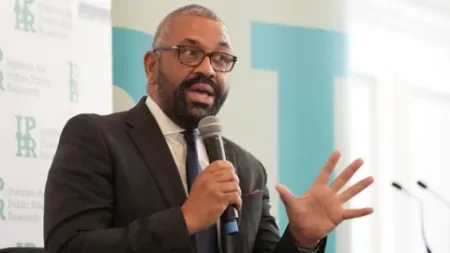In an unprecedented political turn, Warwickshire County Council has formally appointed George Finch, a 19-year-old from the Reform Party, as the youngest permanent council leader in the United Kingdom. This historic vote took place on a Tuesday at the council’s Shire Hall headquarters in Warwick and marks a significant development in local governance. With a considerable budget of £2 billion at his disposal, Finch assumes a considerable amount of responsibility at such a young age, especially given that he will manage resources which include council assets worth approximately £1.5 billion.
George Finch’s appointment comes after a tumultuous political period within the council. He succeeds Rob Howard, who vacated the position merely 41 days after taking office, citing health issues as the primary reason for his abrupt resignation. Before winning the official role, Finch was serving as the interim leader of the council, indicating he already had some hands-on experience in the position, which is expected to aid him in his new duties.
The voting process that led to Finch’s election was not without its complexities. Although the Reform Party enjoys a status as the largest faction within the council, it does not possess an outright majority. This political reality meant that the party had previously relied on support from Conservative councillors to back their decisions. In a surprising twist during the election procedure, Conservative members decided to abstain during the final round of voting, which resulted in a tie with the Liberal Democrat nominee, Jerry Roodhouse. This tie was ultimately resolved by Edward Harris, the chairman of the council, who used his vote to break it in favor of Finch, demonstrating the intricacies involved in local governance and the negotiations often necessary among differing political groupings.
The council chairman, Harris, expressed mixed feelings regarding the election outcome. “I’m disappointed and excited at the same time,” he articulated as he cast his vote to appoint Finch. His comments conveyed the gravity of the situation, emphasizing that a tie is not a desirable outcome during such vital decision-making processes. The Liberal Democrats, represented by Roodhouse, enjoyed backing from Green and Labour councillors, which showcases the diverse political landscape within the council.
As the youngest council leader, Finch’s youth brings both an exciting potential and unknown challenges to his role. He will be tasked with overseeing not just an expansive budget but also fostering the community’s growth and addressing the myriad socio-economic issues that local authorities manage. Advocates for youth engagement in politics could view Finch’s rise as a model for increased youth participation in governance, highlighting the importance of representation from varying demographics in political structures.
Moreover, Finch’s leadership is anticipated to pave the way for progressive policy discussions that resonate with younger constituents, potentially shifting priorities within the council to address contemporary challenges. The significance of his position at such a young age cannot be understated, as it represents a paradigm shift in local governance—one that may inspire similar appointments across the nation, encouraging young leaders to take on active roles in their communities.
In conclusion, George Finch’s election as the leader of Warwickshire County Council marks a seminal moment not only for the council and its constituents but also for the broader landscape of UK politics. With experiences and perspectives unique to his age group, Finch has the opportunity to bring fresh ideas to the forefront, engage with the younger population, and challenge traditional notions of leadership within local government. As he embarks on this new journey, all eyes will be on the youngest council leader in the UK to see how he navigates his responsibilities and implements his vision for the future.










